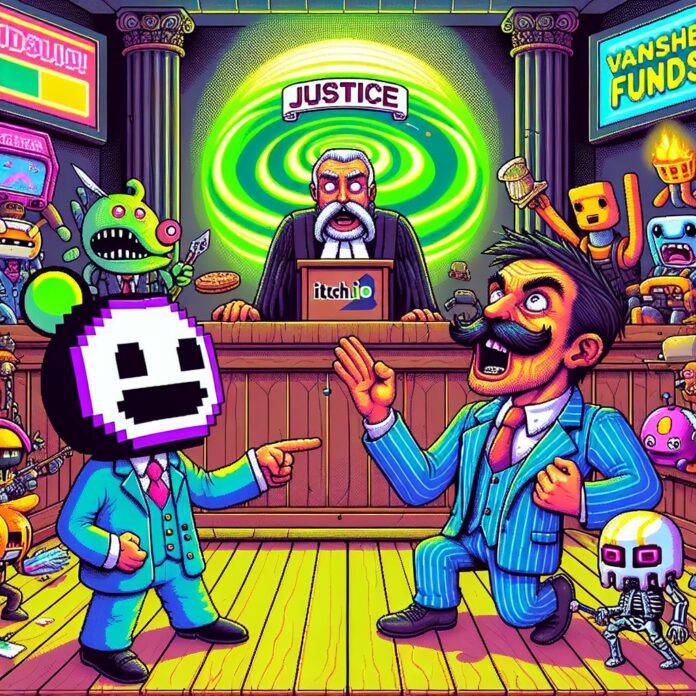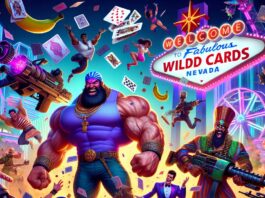If you’ve ever wanted a front-row seat to witness the chaotic romance between big fintech and small indie platforms, look no further! In the latest episode of “The Corporate Chronicles,” Itch.io—our beloved haven for indie games—has decided to delist thousands of games, and the culprit? None other than the payment processing giant, PayPal. Ah yes, PayPal, the knight in shining armor for online transactions, striking fear into the hearts of small creators everywhere.
## What’s Happening? A Tragicomedy in the World of Indie Games
Let’s dive into the drama first: Itch.io, the go-to platform for quirky, creative, and sometimes downright bizarre indie games, is pulling games off its platform en masse. The reason? PayPal’s ever-so-helpful policies have forced Itch.io to comply with a laundry list of rules, making it harder for indie developers to stay afloat. Because why should creators focus on making games when they could be spending their time navigating bureaucratic mazes instead?
You see, PayPal has a habit of freezing accounts, flagging certain transactions, and demanding compliance with standards that are often more opaque than a foggy London morning. This leaves platforms like Itch.io with no choice but to shuffle their game library like a deck of cards and hope they don’t draw the Joker.
For those unfamiliar with Itch.io, it’s a platform that allows indie developers to upload and sell their games directly to players. It’s like the farmers’ market of gaming—quirky, authentic, and completely unregulated. But hey, what’s a farmers’ market without a corporate overlord swooping in to dictate the size of your tomatoes?
## The PayPal Predicament: A Lesson in Corporate Irony
PayPal, which started out as a disruptor of traditional banking, now seems to have fully embraced the oppressive spirit of the institutions it once sought to challenge. It’s the financial equivalent of a rebellious teenager growing up to become a tax auditor. The company’s policies, designed to “prevent fraud” and “ensure compliance,” often end up stifling creativity and innovation instead.
For Itch.io, this means having to monitor transactions more closely, which in turn forces them to delist games that don’t meet PayPal’s guidelines. It’s a bit like asking a librarian to pre-read every book before putting it on the shelf—impractical, inefficient, and guaranteed to annoy everyone involved.
### But Wait, There’s More!
As if delisting games wasn’t bad enough, indie developers now have to deal with the fear of having their accounts frozen or payments delayed. Imagine spending months (or even years) creating a game, only to have your hard-earned revenue trapped in PayPal’s digital limbo. It’s the stuff of nightmares—and not the fun, horror-game kind.
You can read more about PayPal’s controversial practices in this insightful article from The Guardian. Spoiler alert: It’s not all rainbows and sunshine.
## Pros & Cons of the Itch.io-PayPal Drama
### Pros:
– **Increased Awareness:** The controversy has brought attention to the struggles of indie developers.
– **Potential Innovation:** Who knows? This might spur the creation of a new, more indie-friendly payment system.
### Cons:
– **Game Delistings:** Thousands of unique games are no longer available on Itch.io.
– **Developer Frustration:** Creators are left dealing with unnecessary stress and financial uncertainty.
– **Loss of Trust:** Gamers and developers alike may start looking for alternatives to Itch.io.
## What Can Be Done? The Fight for Indie Freedom
So, what’s the solution? Well, for starters, platforms like Itch.io could explore alternative payment processors that are more aligned with their values. While options like Stripe and Square exist, they’re not without their own quirks and limitations. Perhaps it’s time for a new player to enter the market—someone who understands the unique needs of indie creators and gamers.
On the other hand, PayPal could take a long, hard look in the mirror and reconsider its approach to small businesses and creators. But let’s be honest—expecting PayPal to change is like expecting a cat to do your taxes. It’s not impossible, but it’s definitely not likely.
For gamers, the best course of action is to support indie developers directly whenever possible. Many creators have their own websites or alternative ways to accept payments. By cutting out the middleman, you can ensure that your money goes directly to the people who deserve it.
## Final Thoughts: A Call to Action
The Itch.io-PayPal debacle is a stark reminder of the challenges faced by indie developers in a world dominated by corporate giants. But it’s also an opportunity for gamers, creators, and entrepreneurs to come together and demand better solutions.
If you’re an indie developer, consider diversifying your revenue streams and exploring alternative platforms. And if you’re a gamer, show your support by purchasing games directly from creators whenever possible.
To stay updated on the latest developments in the tech world, be sure to check out our related article on indie gaming trends. Together, we can create a more inclusive and sustainable gaming ecosystem.
So, what are you waiting for? Join the conversation, share your thoughts, and let’s work together to make indie gaming great again. Because at the end of the day, creativity deserves to thrive—free from the shackles of corporate bureaucracy.




